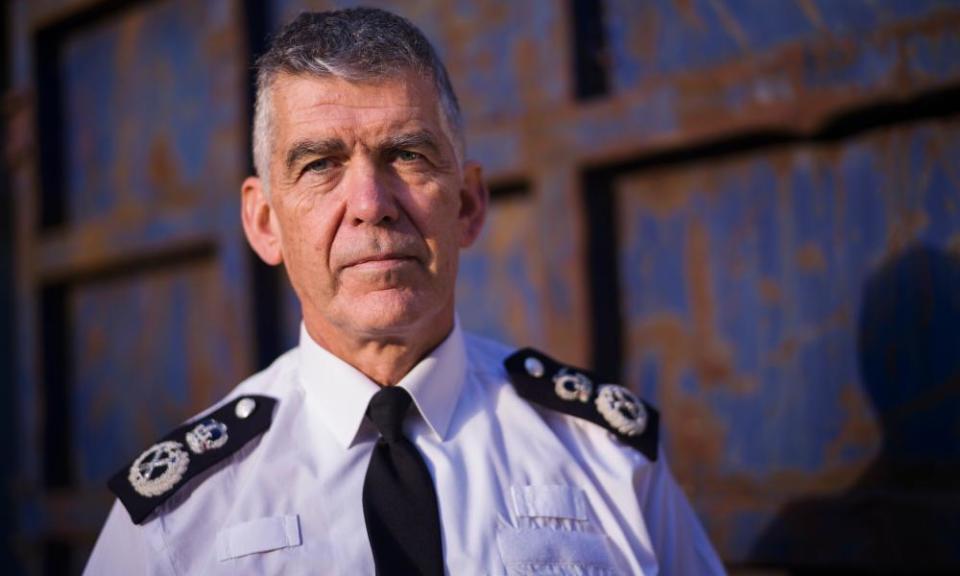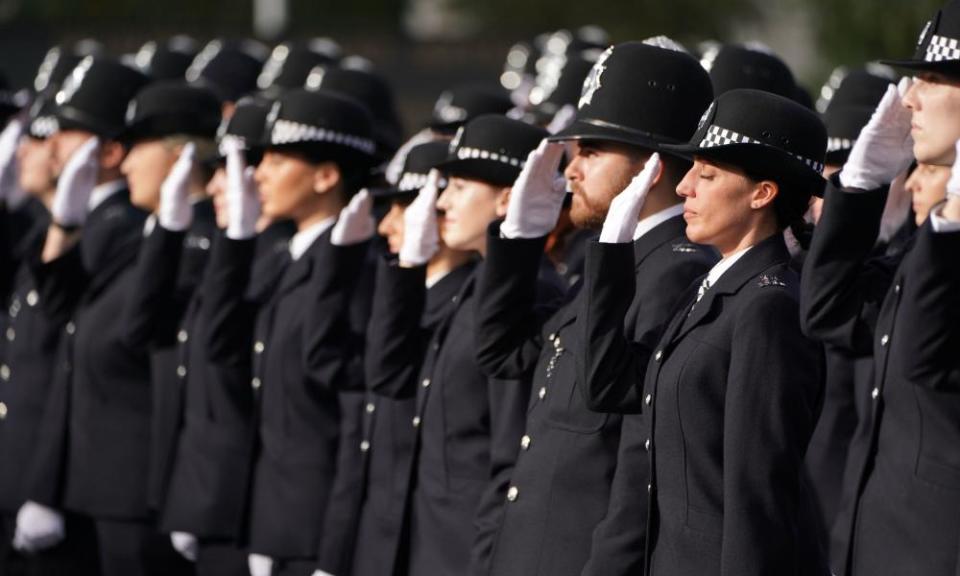‘We failed victims’: top police officer turns focus to gender-based violence

One of the most senior figures in policing in England and Wales is calling for a new gold standard for gender-based violence investigations, saying women have been “systematically failed” by the criminal justice system. Andy Marsh, the chief executive of the College of Policing, said he wanted a new code of practice for the policing of violence against women and girls – the first since the police code of ethics was introduced eight years ago – saying the bond of trust between women and the police “must be mended”.
The move comes after a damning official report into misogyny in policing – ordered after the kidnap, rape and murder of Sarah Everard in March 2021 by a serving Metropolitan police officer – found defective vetting and failures by police leaders had allowed potentially thousands of “predatory” officers into police ranks.
In a candid interview with the Guardian, Marsh said the report – combined with years of scandals and sharp drops in the prosecution of rape, sexual assault and domestic abuse cases – had exposed failures at the highest level of policing.
“We failed victims, we failed them systematically,” he said. “I think everyone in the criminal justice system – which has failed too many victims too often – needs to take a long, hard look at themselves, and put that system back together again in a way that works much more effectively.”
On Friday, the UK observed White Ribbon Day, which seeks to bring attention to a movement to end male violence against women and girls (VAWG) by engaging with men and boys.
Marsh, who became the longest-serving chief officer in England and Wales when he took up the top role at the College of Policing in August, said he wanted to have a new code of practice giving guidance on how to run VAWG investigations and treat victims before the end of 2023. “That’s the firmest approach that we can take to policing standards [and] that’s what I would like to do,” he said.
A code of conduct would probably include lessons from a new “Al Capone” approach to catching rapists being piloted in 14 police forces including Avon and Somerset, where Marsh was the chief constable until June 2021. The college, which is responsible for training and development across 43 forces in England and Wales, also wants to implement a new domestic abuse tool, DARA, to better identify coercive control, which is often overlooked but is the third-highest risk factor in domestic homicide.

The tool would replace the existing yes/no DASH questionnaire with a sliding scale that allows officers to use discretion if they feel a victim is at risk. Marsh said a pilot showed there was a 38% increase in officers coming to the same decision on risk as a domestic abuse expert.
“If you treat officers as professionals and give them the training, knowledge and skills to apply their judgment – they will do a much better job,” he said.
Marsh added that policing by consent could succeed only with public trust and police legitimacy, both of which had been “significantly damaged by the really serious, shocking issues of misconduct that we’ve been hearing about far too frequently”.
Reopening an ongoing spat with independent legally qualified chairs (LQC), who oversee the majority of misconduct hearings, he said he wanted more evidence heard in public, and with tougher sanctions when officers damaged the reputation of the police. He called on chief constables to fast track and oversee more hearings, which can be done when evidence is irrefutable.
“The current system needs some amendments so chief constables have actually got the final decision on who they employ,” he said.
Related: Make it easier to sack failing officers, urges Met police chief
Acknowledging “a failure of leadership on many occasions and lots of levels” in recent years, Marsh said a new leadership centre would help to improve performance, identify diverse talent and root out misconduct.
“Our response must be to work with police forces to develop leadership,” he said. “Because leadership not only makes the right things happen, it creates an environment where people will stand up and call out wrongdoing.”
Marsh said the bond of trust between the police and women “must be mended”, but said he had confidence that could be achieved. He pointed to the record recruitment of female officers – who now make up 34% of forces overall, including 31% of chief officers and 43% of recruits hired since April 2020 – and a series of improvements to the policing of VAWG, including guidance on non-molestation orders, bystander programmes and research on reducing violence against women.
“I have more than optimism, I have confidence that we will rebuild that trust,” he said.

 Yahoo News
Yahoo News 